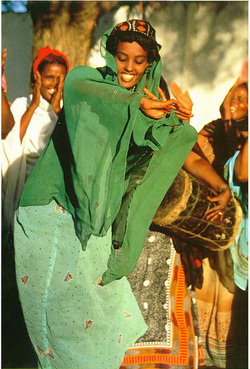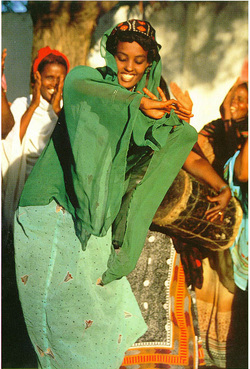King Khufu
Dignified Gentlemen
I’ve been loitering around this topic for the past few days, opening and closing this draft out of fear of appearing too vulnerable or preachy. In one of those fleeting, philosophical moments, I realised that being vulnerable makes you aware. Being aware makes you accountable, and being accountable engenders an environment to battle your demons and overcome your struggles. So hello vulnerability, and can someone say Pastor Gardner?
Not quite. Just a 26-year-old who found herself embarrassingly enraptured in a sexual and spiritual bond that started to poke at existing broken pieces.
A soul tie can foster feelings of emptiness and dependence.
It’s just sex, I had convinced myself months prior to initiating this kind of relationship. For some reason, unbeknownst to good gyal, I thought I could make sex one-dimensional; I thought I could control the narrative, bust a nut, dismiss the fella, carry on with my day, then summon him when I needed sex again. And it worked for a few months…until I found myself at work one day, shaking in my seat like a junkie, hungry for that man’s affection.
You see, our sexual exchanges had intensified, oh they were glorious, which is why I didn’t understand why I’d come home feeling sad and tormented, as if some demonic spirit was roving in my body and wouldn’t let me be. I felt out of control. I needed sex every day, twice a day even if I was sore, and became withdrawn and nasty when I didn’t get it.
I didn’t recognise myself, and then I remembered a term I came across years ago. Soul tie.
A soul tie is popularly formed through sexual intercourse, but can also be formed through close relationships, vows and agreement.
My research has led me to an palatable explanation of what a soul tie is. Imagine gluing two leather belts together then ripping them apart. Pieces of leather will be stuck to the opposite of each belt. The concept of soul ties is similar; connecting with someone sexually will leave some of that person’s spirit with you — whether good or bad. The more sexual connections you have with different people, the more a bit of each person is left with you, and pieces of yourself become a part of them. So even if the sexual relationship is short-lived, the soul tie becomes perpetual.
Most of the research on soul ties are biblically-centred, and I fought that at first as I wanted a scientific, “logical” explanation of why I felt addicted to this man. But then I thought, why not check out the Christian perspective, I was indeed created by God and not science. Period.
Perhaps the most clear-cut representation of the negative effects of an unhealthy soul tie is delineated in 1 Corinthians 6:15: Do you not know that the one who joins himself to a prostitute is one body with her? For He says, “The two shall become one flesh.”
Deejay and Pastor Ryan Mark explores how soul ties can be good or bad in a recent ‘Pure in Heart Ministries International’ sermon. He speaks of soul ties being formed beyond sexual connections, to close/family relationships and vows and agreement. From this I gathered, cool, so God created man and woman to be joined and guided by His word in marriage, so a soul tie operating in the realm of God is healthy. Ahhhh.
A soul tie between a man and woman who place God at the centre of their marriage is healthy.
I also found an academic layout of soul ties, courtesy of American neuropsychiatrist, Dr Daniel Amen.
“Whenever a person is sexually involved with another person, neurochemical changes occur in both their brains that encourage limbic, emotional bonding,” he says in his book, Change Your Brain, Change Your Life. “Limbic bonding is the reason casual sex doesn’t really work for most people on a whole mind and body level. Two people may decide to have sex ‘just for the fun of it,’ yet something is occurring on another level that they might not have decided on at all: sex is enhancing an emotional bond between them whether they want it or not.”
He continues, “One person, often the woman, is bound to form an attachment and will be hurt when a casual affair ends. One reason it is usually the woman who is hurt most is that the female limbic system is larger than the male’s.”
Okay, so both perspectives show that I wasn’t paranoid and this thing is real. How do I free myself from this unhealthy soul tie?
Pastor Mark gives a guideline which I will expound on.
Takeaways
Form a soul tie with God first so you won’t have to rely on another person to feel whole. Sex is a tridimensional experience: spirit, soul and body. Aim to only experience that and form a healthy soul tie with one person, under the covenant of God. It’s less stressful, one less spiritual battle to fight and surely one less “fix it” article to read.
P.S. I interviewed the guy I shared this soul tie with. You may read his perspective here.
Not quite. Just a 26-year-old who found herself embarrassingly enraptured in a sexual and spiritual bond that started to poke at existing broken pieces.
A soul tie can foster feelings of emptiness and dependence.
It’s just sex, I had convinced myself months prior to initiating this kind of relationship. For some reason, unbeknownst to good gyal, I thought I could make sex one-dimensional; I thought I could control the narrative, bust a nut, dismiss the fella, carry on with my day, then summon him when I needed sex again. And it worked for a few months…until I found myself at work one day, shaking in my seat like a junkie, hungry for that man’s affection.
You see, our sexual exchanges had intensified, oh they were glorious, which is why I didn’t understand why I’d come home feeling sad and tormented, as if some demonic spirit was roving in my body and wouldn’t let me be. I felt out of control. I needed sex every day, twice a day even if I was sore, and became withdrawn and nasty when I didn’t get it.
I didn’t recognise myself, and then I remembered a term I came across years ago. Soul tie.
A soul tie is popularly formed through sexual intercourse, but can also be formed through close relationships, vows and agreement.
My research has led me to an palatable explanation of what a soul tie is. Imagine gluing two leather belts together then ripping them apart. Pieces of leather will be stuck to the opposite of each belt. The concept of soul ties is similar; connecting with someone sexually will leave some of that person’s spirit with you — whether good or bad. The more sexual connections you have with different people, the more a bit of each person is left with you, and pieces of yourself become a part of them. So even if the sexual relationship is short-lived, the soul tie becomes perpetual.
Most of the research on soul ties are biblically-centred, and I fought that at first as I wanted a scientific, “logical” explanation of why I felt addicted to this man. But then I thought, why not check out the Christian perspective, I was indeed created by God and not science. Period.
Perhaps the most clear-cut representation of the negative effects of an unhealthy soul tie is delineated in 1 Corinthians 6:15: Do you not know that the one who joins himself to a prostitute is one body with her? For He says, “The two shall become one flesh.”
Deejay and Pastor Ryan Mark explores how soul ties can be good or bad in a recent ‘Pure in Heart Ministries International’ sermon. He speaks of soul ties being formed beyond sexual connections, to close/family relationships and vows and agreement. From this I gathered, cool, so God created man and woman to be joined and guided by His word in marriage, so a soul tie operating in the realm of God is healthy. Ahhhh.
A soul tie between a man and woman who place God at the centre of their marriage is healthy.
I also found an academic layout of soul ties, courtesy of American neuropsychiatrist, Dr Daniel Amen.
“Whenever a person is sexually involved with another person, neurochemical changes occur in both their brains that encourage limbic, emotional bonding,” he says in his book, Change Your Brain, Change Your Life. “Limbic bonding is the reason casual sex doesn’t really work for most people on a whole mind and body level. Two people may decide to have sex ‘just for the fun of it,’ yet something is occurring on another level that they might not have decided on at all: sex is enhancing an emotional bond between them whether they want it or not.”
He continues, “One person, often the woman, is bound to form an attachment and will be hurt when a casual affair ends. One reason it is usually the woman who is hurt most is that the female limbic system is larger than the male’s.”
Okay, so both perspectives show that I wasn’t paranoid and this thing is real. How do I free myself from this unhealthy soul tie?
Pastor Mark gives a guideline which I will expound on.
- Identify it: When you find yourself woven with something that is not of the spirit of God, it’s easy to identify. An unhealthy soul tie is dependent, manipulative and self-destructive. You may obsess about the person even after leaving the relationship, and if you stay, you’ll accept any toxicity and abuse because you feel you cannot walk away. You may also take on the negative traits of the person you share an unhealthy soul tie with, and have simultaneous experiences they do, positive or nah.
- Confess and repent: *Cues preaching* LOL. Seriously though, ask God for help and forgiveness. Thinking we can demolish a soul tie by merely leaving a relationship is misleading. If you ever come in contact with the person again or share an intimate space, old flames will rekindle and you’ll be shackled to that which continued to linger inside.
- Discard material things received in that bond: Get rid of things that carry sentiments given to you by the person you want to cut soul ties with. Break every chain, literally.
- Renounce and denounce in the name of Jesus: Words have power. Just as you can say you cannot live without a person, you can also denounce the unhealthy soul tie in the name of Jesus Christ. Best believe.
- Forgive and release: Forgive yourself and the person so he/she doesn’t live with and inside you forever. Despite any hurt or ill-feelings you may have, you cannot wish karma on someone else. Wish blessings and release yourself.
Takeaways
Form a soul tie with God first so you won’t have to rely on another person to feel whole. Sex is a tridimensional experience: spirit, soul and body. Aim to only experience that and form a healthy soul tie with one person, under the covenant of God. It’s less stressful, one less spiritual battle to fight and surely one less “fix it” article to read.
P.S. I interviewed the guy I shared this soul tie with. You may read his perspective here.





